Dr. Isaacs is an Associate Professor in the Department of Molecular, Cellular and Developmental Biology and a core faculty member in the Systems Biology Institute at Yale. He is a synthetic biologist focused on developing foundational genomic and cellular engineering technologies to understand and engineer biological systems. His lab integrates engineering and evolution through the construction of genes, networks and genomes alongside quantitative models to gain a better understanding of biological systems. In turn, they utilize these insights to program and evolve organisms with new biological function. A particular emphasis is the development of genome engineering technologies to construct ‘Genomically Recoded Organisms’ that possess an alternate genetic code. In the context of CaSB@Yale, re-coded organisms improve properties for incorporating nonstandard amino acids into proteins, including the site-specific incorporation of phosphoserine to activate human kinases in engineered bacteria. Dr. Isaacs’ work focuses on incorporating phosphorylated amino acids to enable the production of active kinases implicated in the tumorigenesis of glioblastomas. These efforts will be extended in three key areas: (1) to recapitulate phosphorylation-based mammalian signaling in recoded bacteria, (2) to elucidate biomolecular interactions of kinase functions, and (3) will be leveraged to identify novel inhibitors of kinase activity.
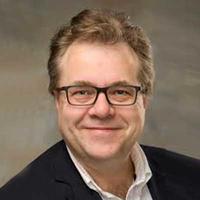 Mark Lemmon, Ph.D.
Mark Lemmon, Ph.D.
Lemmon lab website
Dr. Mark Lemmon is a cellular and molecular biologist and pharmacologist, is Co-Director of the Yale Cancer Biology Institute, and David A. Sackler Professor of Pharmacology. The Lemmon laboratory has made significant contributions to understanding molecular mechanisms of cellular signaling by growth factor receptor tyrosine kinases – notably the EGF receptor – and through lipid second messengers, notably the phosphoinositides and other anionic lipids that bind pleckstrin homology (PH), FYVE, KA1, and other domains. The Lemmon lab made highly significant and high impact contributions to the structural understanding of both of these phenomena, and to understanding these signaling axes from structural/mechanistic perspectives – combining cellular, biochemical, structural, and (increasingly) organismal studies. Recently, a key goal of the laboratory has been to understand how mutational alterations of receptor tyrosine kinases, in particular the therapeutic targets EGFR and ALK, lead to aberrant signaling and cancer – and how this information can be used to impact clinical approaches (through direct collaboration with clinicians). The goal is to bring more biochemistry to personalized medicine in oncology. Another key aim of work of the Lemmon laboratory is to understand signaling systems and networks more broadly by studying the signaling consequences of molecular perturbations that are well defined (through the lab’s in vitro and structural work). This has been applied to studies of the role of the EGF receptor in Drosophila development, and is now being pursued in several cancer cell contexts.
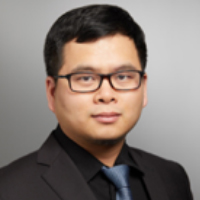 Yansheng Liu, Ph.D.
Yansheng Liu, Ph.D.
Liu lab website
Dr. Yansheng Liu is an Assistant Professor in the Department of Pharmacology at Yale University School of Medicine. He received a Ph.D. of Biomedical Sciences at Shanghai Institute for Biological Sciences, Chinese Academy of Sciences, Shanghai China in 2011. Between May 2011 and October 2017, he completed a post-doctoral fellowship in the laboratory of Dr. Ruedi Aebersold at the Institute of Molecular Systems Biology, ETH Zurich, Switzerland, where he studied human “genotype-phenotype” association by characterizing proteome dosage effect and contributed to the development of SWATH-MS, a data-independent acquisition mass spectrometry (DIA-MS) technique. In December 2017, he joined the faculty at the Yale Cancer Biology Institute and Department of Pharmacology at Yale. He currently serves as the Editorial Board member for the journals of Proteomics and Proteomics-Clinical Applications. His current research group aims to contribute to the development of multiplexed, high-throughput DIA-MS technique and other proteomic methods, as well as their applications in protein turnover, cancer aneuploidy, and cancer signaling transduction.
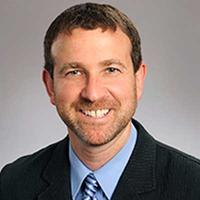 Adam Marcus, Ph.D.
Adam Marcus, Ph.D.
Marcus lab website
Dr. Adam Marcus, an Associate Professor of Hematology and Medical Oncology at Emory University School of Medicine, is a cancer biologist who focuses on understanding how cancer cells invade using a combination of molecular and imaging-based approaches. He has numerous publications studying the mechanisms of cancer cell invasion and metastasis that incorporates clinical and pre-clinical studies. His laboratory has developed a new image-guided genomics approach to dissect tumor cell heterogeneity in the context of cancer cell invasion. This work has revealed a symbiotic mechanism for cancer cell invasion and has led to generation of novel cell lines to probe the biology of cell:cell communication. This work will be used to generate a portion of the data related CaSB@Yale research. Dr. Marcus serves as the Director of the Emory Integrated Cellular Imaging Core, which houses 17 microscopes throughout Emory’s campus and is part of the NCI-Designated Winship Cancer Institute. Dr. Marcus also serves as the Director of Graduate Studies for the Cancer Biology Ph.D. program at Emory, and founded the K-12 STEM outreach organization Students for Science. Dr. Marcus will enable the development and use of the SAGA methodology to explore the homotypic cell-cell communication.
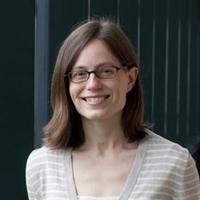 Kathryn Miller-Jensen, Ph.D.
Kathryn Miller-Jensen, Ph.D.
Miller-Jensen lab website
Dr. Kathryn Miller-Jensen is an Associate Professor of Biomedical Engineering and Molecular, Cellular, and Developmental Biology at Yale University. Her lab combines experimental and computational approaches to study signaling and transcriptional regulation in the immune system, with a focus on how intercellular macrophage heterogeneity drives disease phenotypes. Through a pilot grant from CaSB, members of the lab are studying heterogeneity in macrophage subsets and their role in shaping intercellular communication networks within the melanoma tumor microenvironment. Her research is supported by the National Institutes of Health, the Bill and Melinda Gates Foundation, and a National Science Foundation CAREER Award. Prof. Miller-Jensen was an NIH NSRA Postdoctoral Fellow at the University of California at Berkeley and she holds a Ph.D. in Chemical Engineering from the Massachusetts Institute of Technology.
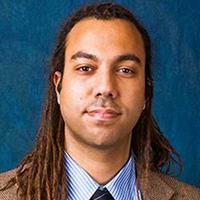 Michael Murrell, Ph.D.
Michael Murrell, Ph.D.
Murrell lab website
Dr. Michael Murrell, an Assistant Professor in the Department of Biomedical Engineering and a core faculty member in the Systems Biology Institute at Yale, is a biophysicist whose primary expertise is in mechanical force production in cell biology. His laboratory develops approaches to understanding mechanical force generation by two distinct but complementary approaches. First, he measures the mechanical stresses produced by living cells subject to genetic and pharmacological perturbation. In doing so, he identifies how the dynamics and composition of the cell cytoskeleton and cell membrane influence the generation and transmission of mechanical stresses to the extracellular matrix. In parallel, he designs and engineers artificial cells in vitro, using purified proteins and lipids to reconstruct the cell cytoskeleton and membrane, for the goal of reproducing force production in a simplified system. As there are few components, and no biochemical regulation, this allows him to isolate the role of individual components, whose abundance and activity can be easily manipulated. To this end, Dr. Murrell has developed precise control of physical variables that can influence the generation and transmission of mechanical stresses, including cell volume, F-actin organization, membrane tension, fluid pressure and adhesion. From this, his lab learns basic physical principles regarding how cells produce mechanical force, which may otherwise be obfuscated by the overlapping biochemical and genetic regulation that exits in living cells. Thus, their simplified systems can inform us as to the basic physical relationships that underlie mechanical force production in cells, as well as provide potential targets for genetic and pharmacological perturbations. Dr. Murrell will seek to identify the role of NKCC1 in mediating mechanical force production in invasive glioblastoma and melanoma cells, by exploring its role in coupling to the cytoskeleton, as well as modulating fluid flow, hydrostatic pressure, and the volume of the cell.
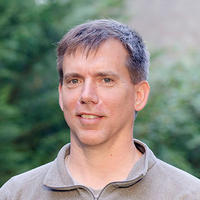 Corey O’Hern, Ph.D.
Corey O’Hern, Ph.D.
O’Hern lab website
Dr. Corey O’Hern is a Full professor in the Department of Mechanical Engineering & Materials Science at Yale with secondary appointments in the Department of Applied Physics and Department of Physics. He is a computational and theoretical physicist studying soft and biological materials including granular materials and colloids, proteins, cells, and tissues. Current projects include cell migration and packing in tissues and tumors, and structure prediction and decoy detection in proteins. His research group includes three postdoctoral research associates (one of whom is jointly supported by CaSB@Yale PI, Prof. Michael Murrell) and nine Ph.D. students from a range of departments and graduate programs including Mechanical Engineering & Materials Science, Applied Physics, Chemistry, Physics, and Computational Biology and Bioinformatics. He is the Director of Yale’s Integrated Graduate Program in Physical and Engineering Biology (IGPPEB), Yale’s NIH T32 training grant “Convergent graduate training in engineering, physics, and biology,”and Yale’s NSF REU Site: Interdisciplinary Research Training Across Biology, Physics, and Engineering. The IGPPEB brings students with backgrounds in the physical and biological sciences into educational and research programs that apply quantitative physical approaches to key questions in biology. Students entering through the IGPPEB program will be well prepared to perform research in any CaSB@Yale laboratory. He became a fellow of the American Physical Society in 2017.
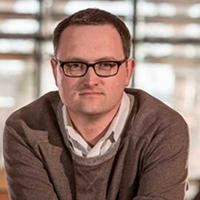 Jesse Rinehart, Ph.D.
Jesse Rinehart, Ph.D.
Rinehart lab website
Dr. Jesse Rinehart is an Assistant Professor in the Department of Cellular & Molecular Physiology at the Yale University School of Medicine and also a core faculty member in the Yale Systems Biology Institute. He is a physiologist and proteomics expert. Dr. Rinehart studied protein synthesis and the evolution of the genetic code during his graduate work and completed his postdoctoral training focused on protein phosphorylation in physiological systems. Dr. Rinehart’s research aims to understand and “decode” complex signaling networks in physiological systems. Researchers in the Rinehart laboratory use an innovative combination of quantitative phosphoproteomics and synthetic biology to achieve their aims. They are now applying this technology to understand the properties of phosphoserine in human kinases and singling networks. Dr. Rinehart’s team will deploy these enabling technologies to advance our understanding of how kinases control aggressive cancers and specifically to identify small molecule kinase inhibitors to target human cancers.
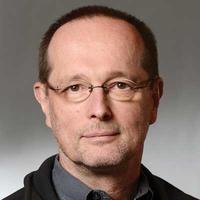 Günter Wagner, Ph.D.
Günter Wagner, Ph.D.
Wagner lab website
Dr. Günter Wagner is an evolutionary biologist studying the evolution of the mammalian female reproductive tract, and other aspects of the evolution of development. He is Alison Richard Professor of Ecology and Evolutionary Biology and a core faculty member in the Yale Systems Biology Institute. His laboratory focuses on the evolution of gene regulation and the evolutionary origin of the uterine decidual cell, a cell type critical for the implantation of the fetus and the maintenance of pregnancy. One of the main functions of the decidual cell is to regulate the invasion of the fetal trophoblast and thus the regulation of invasive behavior. Last year Dr. Wagner, together with a student Alaric D’Souza, published a paper that documented a correlation between the (secondary) evolution of non-invasive placentation and a lower rate of malignancy in certain forms of cancer. This observation motivates his participation CaSB@Yale, where he will investigate the mechanisms by which endometrial stromal cells oppose the invasion of the fetus and how, in bovines and related species, this may also have conveyed resistance to melanoma malignancy.
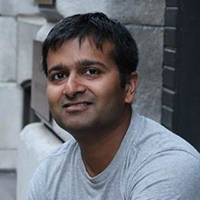 Kshitiz Gupta, Ph.D.
Kshitiz Gupta, Ph.D.
Kshitiz lab website
Dr. Kshitiz Gupta is a bioengineer who is an Associate Professor of Biomedical Engineering at the University of Connecticut. Dr. Gupta has broad expertise in mechanobiology, and studying intercellular communication. He has a B.Tech. in Computer Science and a Ph.D. in Biomedical Engineering, and served as the founder and Chief Scientific Officer of CardiacMimetics, a startup company based on detecting cardiotoxic drugs during drug development. Dr. Gupta is developing techniques to study cell-cell interactions, including platforms to measure collective cell invasion, and cellular intercommunication.
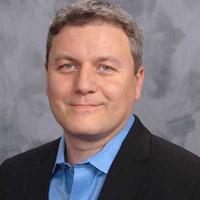 Andre Levchenko, Ph.D.
Andre Levchenko, Ph.D.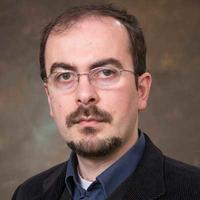 Murat Acar, Ph.D.
Murat Acar, Ph.D.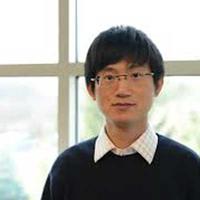 Sidi Chen, Ph.D.
Sidi Chen, Ph.D.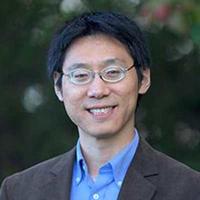 Rong Fan, Ph.D.
Rong Fan, Ph.D. Farren Isaacs, Ph.D.
Farren Isaacs, Ph.D. Mark Lemmon, Ph.D.
Mark Lemmon, Ph.D. Yansheng Liu, Ph.D.
Yansheng Liu, Ph.D. Adam Marcus, Ph.D.
Adam Marcus, Ph.D. Kathryn Miller-Jensen, Ph.D.
Kathryn Miller-Jensen, Ph.D. Michael Murrell, Ph.D.
Michael Murrell, Ph.D. Corey O’Hern, Ph.D.
Corey O’Hern, Ph.D. Jesse Rinehart, Ph.D.
Jesse Rinehart, Ph.D. Günter Wagner, Ph.D.
Günter Wagner, Ph.D. Kshitiz Gupta, Ph.D.
Kshitiz Gupta, Ph.D.